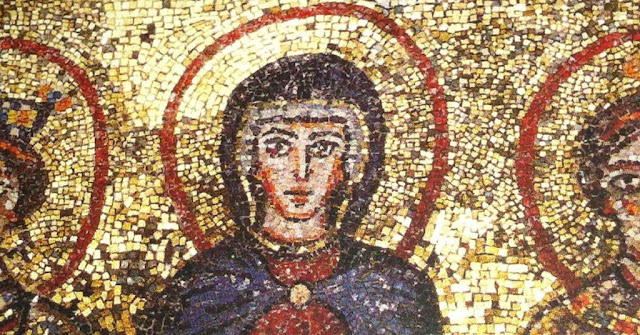Ben Sirach 51’s Psalm to Wisdom and Possible Implications Regarding the Song of Songs
The apocryphal Wisdom of Ben Sirach (alternatively known as Ecclesiasticus or Ben Sira) closes with a Hymn to Lady Wisdom in Sirach 51, beginning in verse 13. A version of this Psalm has been discovered among the Dead Sea Scrolls, albeit with significant differences when compared with the text found in the Greek Septuagint.
The following table shows Sirach 51 according to the Dead Sea Scrolls (Scroll 11QPs) and the Septuagint (LXX), divided into similar blocks of verses for ease of comparison (note that versification does differ):
|
11QPs[1] |
LXX[2] |
|
13While
I was a young man, |
13While
I was still young, |
|
14She
came to me in her beauty, |
14I
asked for her before the temple, |
|
15Even
as the blossom drops in the ripening of grapes, |
15From
the blossom as the ripening grape, |
|
17I
inclined my ear but a little, |
16I
inclined my ear a little, and I received her, |
|
18So
she became a wet-nurse for me; |
17I
had progress by her; |
|
19I
decided to make sport: |
18For
I purposed to practice her, |
|
20I
kindled my passion for her, |
19My
soul has contended with her, |
|
22[I]
spread my “hand” […][3] |
20I
directed my soul to her; |
|
[…] |
21And
my belly was stirred up to seek her; |
|
|
30Do
your work before its time, |
The variant reading as found at Qumran contains no direct reference to Lady Wisdom, and can be read as extremely sensual in nature. Translators of the Dead Sea Scrolls Abegg et al. believe that the sensual poem found at Qumran is the original, uncensored text, contending that the sensual themes would have naturally been edited out.[4]
However, other possibilities exist. First, it is possible that the two versions of this poem come from differing textual traditions. Such practice was likely common among various scribes.
A second, more intriguing, possibility is that much like the Song of Songs and its many references to physical love, this poem may have been understood allegorically, with the allegory recorded in the Septuagint rendering of this poem and the love poem recorded in the Dead Sea Scrolls. This is not entirely out of the question — the midrash Song of Songs Rabbah, for example, is a lengthy extension of the Song of Songs to represent its allegorical reading.
Should the latter be correct, we would have an instance of Israelite love poetry accepted (by some circles) as canonical scripture because of the potential allegorization of it. Much like the Song of Songs can be understood as a lengthy allegory regarding God’s love for His covenant people, so too could a version of Sirach 51:13–30 be understood as a psalm praising Lady Wisdom and seeking after Her, even if sensual imagery was included in its source text. This possibility has potential to strengthen the placement of the Song of Songs in the biblical canon, even if no such allegory was originally intentional.[5]
[1] Martin Abegg, Jr., Peter Flint, and Eugene Ulrich (trans.), The Dead Sea Scrolls Bible: The Oldest Known Bible Translated for the First Time into English (New York, NY: Harper Collins, 1999), 576. This citation has been silently altered to better show the verse format.
[2] This is taken from Ken M. Penner et al., The Lexham English Septuagint: A New Translation 2nd ed. (Bellingham, WA: Lexham Press, 2019). I have chosen this edition for its readability; another excellent translation of the Septuagint for a more scholarly audience is Albert Pietersma et al., eds., A New English Translation of the Septuagint: And the Other Greek Translations Traditionally Included under That Title (New York, NY: Oxford University Press, 2007). Most translations that include the Apocrypha, such as the New Revised Standard Version, also contain this book.
[3] In vv. 22–23 of the Qumran version, the word yad is seen as a euphemism for “penis” by Abegg et al. It is likely that this word is a form of the verb yadad meaning “to love” as Robert Alter points out in his commentary on Isaiah 47:3, where a similar instance of the word yad has been mistakenly understood to refer to nakedness. (It is common for repeated letters to be written only once, with a dagesh taking the second’s place in Hebrew.)
[4] Abegg et al., Dead Sea Scrolls Bible, 576.
[5] Latter-day Saints are likely aware that Joseph Smith, when producing his new translation of the Bible, commented that “The Songs of Solomon are not inspired writings.” This has led some to reject it outright — however, Joseph would later quote from the Song in various sections of the Doctrine and Covenants and later on throughout his life. As I will discuss at length in a future publication, it is likely that Joseph did not see the Song as worthless, despite his likely belief that the original text of the Song was “uninspired.”


.jpg)
Comments
Post a Comment
Thoughtful comments are welcome. All comments are moderated.